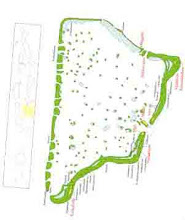
It was 8:45 am in downtown Mumbai India and I was at the railway bridge gazing down amazed as hundreds of men worked vigorously, up to their knees in cold soapy water in rows of open tanks alongside caustic vats in the morning sunshine, pounding and hanging wet cloth in Bombay’s laundry. Dhobi Ghat is Mumbai’s timeless laundry where 5,000 men work daily and a vast network of hereditary ‘dhobi’ collectors, mainly families and children, bring washing form all over the exploding city. This is, in fact, a unique feature of Mumbai. The dhobi is a traditional laundryman, who will collect your dirty linen, wash it, and return it neatly pressed to your doorstep. All for a pittance. The "laundries" are called "ghats": row upon row of concrete wash pens, each fitted with its own flogging stone. The clothes are soaked in sudsy water, thrashed on the flogging stones, then tossed into huge vats of boiling starch and hung out to dry. Next they are ironed and piled into neat bundles. The most famous of these Dhobi Ghats is at Saat Rasta near Mahalaxmi Station where almost two hundred dhobis and their families work together in what has always been a hereditary occupation. Dhobi Ghat is symbolic place from a country that lives with so many differences. The growing gap is visible everywhere, between this reality and fast track, first world India with its gleaming hotels, new shopping malls, glass clad landscaped office campuses like new-day Maharajas’ palaces, broadband and telecom access and vibrant media.
















Sem comentários:
Enviar um comentário